China's Counterfeit Culture: Even Buildings Fall Victim To Copycats
China has long had a reputation for its abundance of counterfeit goods, but now its copycat culture is going beyond the intellectual property of movies, music and other bootleg items. Several of the nation's new architectural projects are carbon-copy replicas from other parts of China and around the world.
In 2011, a town in Huizhou city, in Guangdong province in southern China, made headlines when it was discovered that it was almost an exact copy of an Alpine village in Austria and Unesco World Heritage Site named Hallstatt. According to China Daily, the project cost $940 million and was the idea of a Chinese mining tycoon.
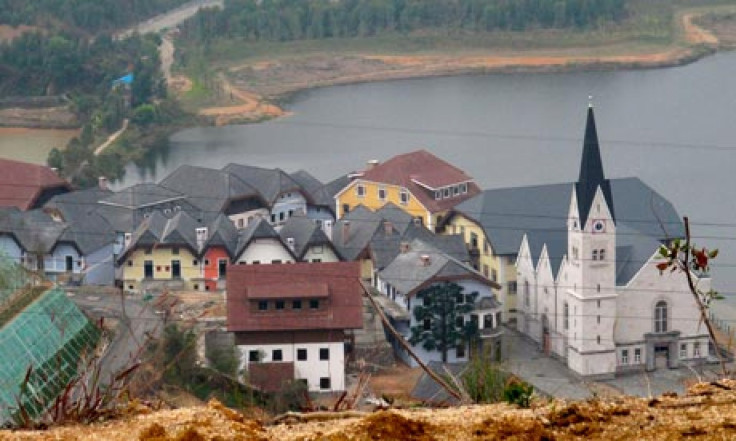
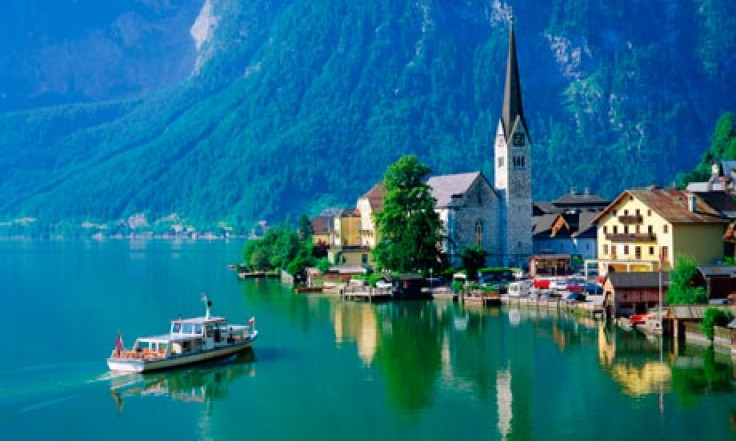
The fake Hallstatt (above) and the real one
The Huizhou version of Hallstatt, or Halltstatt 2, mainly serves as a tourist attraction and was not built with the intention of housing residents, somewhat akin to the replicas of scenic citiies found in Las Vegas. However, in the case of Haltstatt 2, the plans were formed and executed in secrecy, which had some residents of the original Halltstatt upset.
"They should have asked the owners of the hotel and the other buildings if we agree with the idea to rebuild Hallstatt in China, and they did not," Monika Wenger, the owner of a Hallstatt hotel that was copied, said to News 24.
Apparently, Wenger only found out about the project when a Chinese guest, sent to do some architectural "research," accidentally publicized the plans. For the most part, however, the Chinese version of Halltstatt has been received with flattery by most people in the Austrian town.
"The population is amused that such a little place of the region Salzkammergut is important enough to get a copy," Alexander Scheutz, mayor of Halltstatt, said in an interview with the BBC.
Reactions aren't as amused from the architects whose buildings get copied.
Most recently, a copy of a project in Beijing's Wangjing area, which is still in construction, by Zaha Hadid, a British-Iraqi architect, has popped up in the southern city of Chongqing, much to the displeasure of the Beijing developers and Hadid herself.
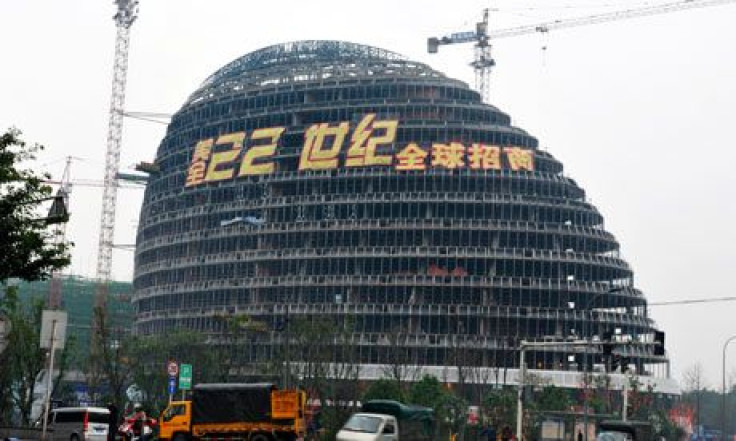
Chongqing's pebble-shaped building, which Hadid says is too similar to her designs
According to the Guardian, both Hadid and the chairman of the Chinese real estate development giant Soho, Pan Shiyi, intend to take the Chongqing developers to court for intellectual property infringement. However, the Chongqing developers are insisting that their pebble-shaped buildings were inspired by the stones that can be found in the nearby Yangtze river and not by Hadid's building.
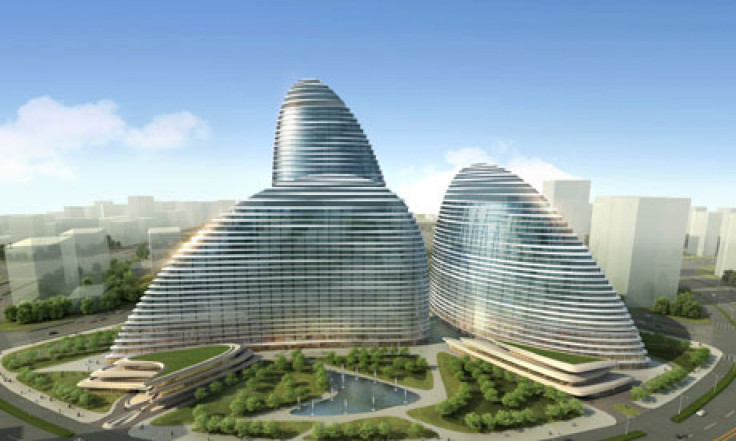
Hadid's newest project in Wangjing, which is still under construction
That may be a lie. The futuristic, rounded buildings in Chongqing seem to be distinctly hers. Hadid just completed a building in Beijing's Chaoyang district, called Soho Galaxy, late last year. Her distinct design style for the Galaxy project carried through to her new project in Wangjing, located 20 minutes away.
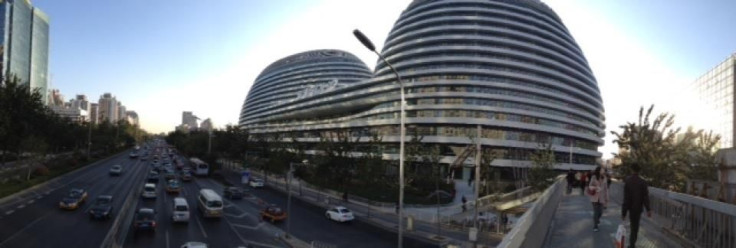
Hadid's completed project, Beijing's Soho Galaxy
Whether or not Chongqing developers used Hadid's plans is still to be determined, but Hadid's Galaxy and Wangjing buildings aren't the first of their kind in Beijing.
The Guardian correctly pointed out the city's first rounded structure, the National Grand Theater, opened in 2007. The theater, designed by Paul Andreu and dubbed the Egg by locals, could also arguably be considered as the main inspiration for Beijing's new bulbous structures.
The controversial building in Chongqing recently launched a slogan to counter the accusations: "Never meant to copy, only want to surpass."
But that's marketing. The legal aspects are murkier, and China currently isn't very good at discerning between inspiration and infringement.
© Copyright IBTimes 2024. All rights reserved.












